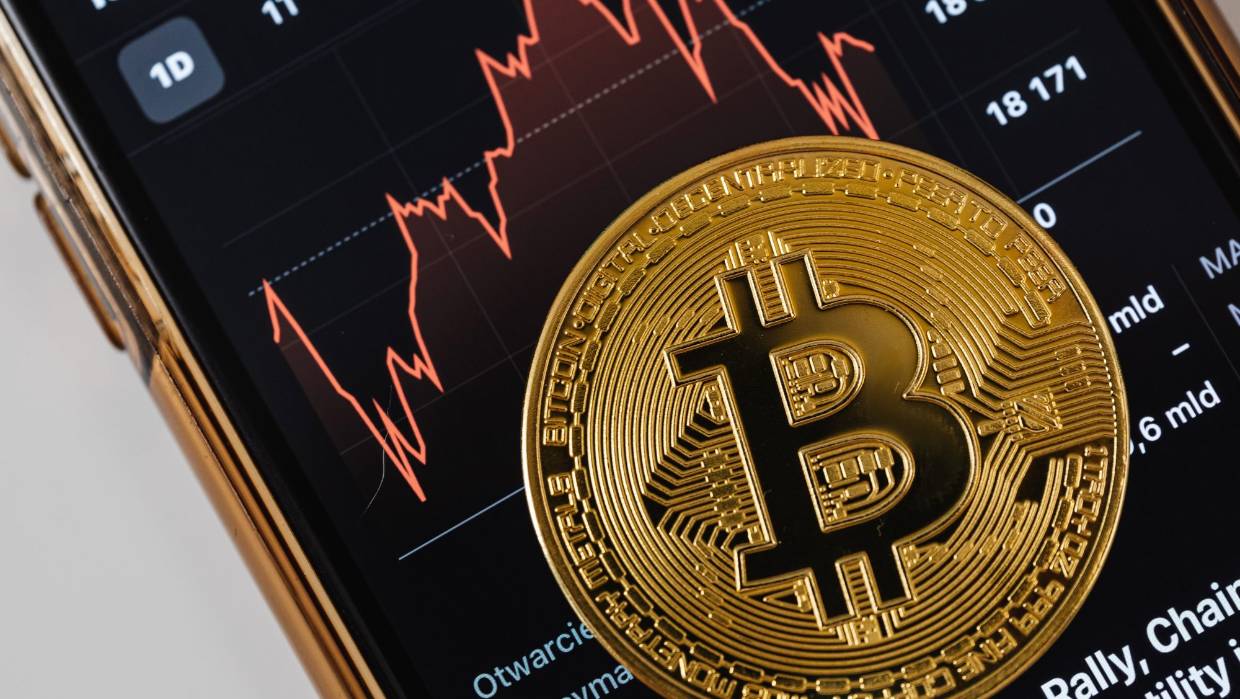Welcome to the exciting and ever-evolving world of cryptocurrency! If you’ve heard whispers about Bitcoin but find yourself scratching your head in confusion, fear not. In this beginner’s guide, we’ll demystify the concept of Bitcoin and shed light on its inner workings. Whether you’re a tech-savvy individual or completely new to digital currencies, this article will provide you with a solid foundation to navigate the fascinating realm of cryptocurrency. So buckle up, because we’re about to embark on an eye-opening journey into the realm of Bitcoin!
What is Bitcoin?
What is Bitcoin?
Bitcoin, simply put, is a decentralized digital currency that operates without the need for a central bank or government. It was created in 2009 by an anonymous individual (or group) known as Satoshi Nakamoto. Unlike traditional currencies such as the US dollar or Euro, Bitcoin exists solely in digital form and is not physically printed.
At its core, Bitcoin relies on blockchain technology to ensure transparency and security within its network. The blockchain acts as a public ledger that records all transactions made with Bitcoin. This means that every single transaction can be traced back to its origin, adding a layer of accountability to the system.
One of the most significant characteristics of Bitcoin is its limited supply. There will only ever be 21 million Bitcoins in existence, making it a finite resource. This scarcity factor contributes to its value and potential for investment.
Bitcoin also offers users the ability to remain pseudonymous while conducting transactions. Instead of revealing personal information like credit card numbers or addresses when making payments, users utilize unique cryptographic keys tied to their wallets.
In recent years, Bitcoin has gained mainstream recognition and acceptance as more companies and merchants adopt it as a form of payment. Its decentralized nature makes it resistant to censorship and provides individuals with greater control over their finances.
Now that we have covered what exactly Bitcoin is at its core let’s dive into how this innovative cryptocurrency actually works!
How does Bitcoin work?
Bitcoin, the digital currency that has taken the world by storm, operates on a decentralized network called blockchain. But how exactly does it work? Let’s delve into the inner workings of Bitcoin and demystify its complex mechanism.
At its core, Bitcoin is powered by a technology known as blockchain. This revolutionary system allows for secure and transparent transactions without the need for intermediaries like banks or governments. Essentially, every transaction made using Bitcoin is recorded on a public ledger called the blockchain.
When someone initiates a transaction with Bitcoin, it is broadcasted to all participants in the network. These participants, known as miners, then compete to solve complex mathematical puzzles in order to validate and add the transaction to a new block in the chain.
Once a miner successfully solves these puzzles and adds a block to the chain, they are rewarded with newly minted Bitcoins as an incentive for their efforts. This process not only ensures security but also maintains integrity within the network.
To prevent fraud or double-spending of Bitcoins (using them more than once), each transaction includes digital signatures that verify ownership and authenticity. Additionally, cryptographic algorithms make it nearly impossible for anyone to alter past transactions or manipulate the system.
Furthermore, Bitcoin transactions are pseudonymous rather than anonymous since each user has a unique address associated with their wallet. While this provides some level of privacy protection compared to traditional banking systems, it should be noted that all transactions can still be traced on the blockchain if necessary.
Bitcoin works through a decentralized peer-to-peer network where transactions are validated by miners using complex mathematical calculations. The transparency provided by blockchain technology ensures security while enabling fast and efficient transfers across borders without intermediaries.
With this understanding of how Bitcoin works under your belt,
you’re now ready to explore further into this fascinating world of cryptocurrency!
What are the benefits of Bitcoin?
Benefits of Bitcoin
Bitcoin offers several advantages that make it an attractive investment and payment option in the digital age.
1. Decentralization: One of the key benefits of Bitcoin is its decentralized nature. Unlike traditional currencies that are controlled by central banks, Bitcoin operates on a peer-to-peer network, eliminating the need for intermediaries. This means that transactions can be conducted directly between users without any intermediaries or third parties involved, resulting in lower fees and faster processing times.
2. Security: Bitcoin transactions are highly secure due to the use of cryptographic technology. Each transaction is recorded on a public ledger called the blockchain, which ensures transparency and prevents fraud or manipulation. Additionally, users have full control over their funds, as they hold their private keys, making it difficult for hackers to steal their bitcoins.
3. Global Accessibility: Bitcoin allows for seamless cross-border transactions without the need for currency conversions or dealing with foreign exchange rates. This makes it particularly beneficial for international payments and remittances, where traditional methods can be costly and time-consuming.
4. Limited Supply: Unlike fiat currencies that can be printed at will by central banks leading to inflationary pressures, there is a limited supply of bitcoins available – only 21 million will ever exist. This scarcity gives bitcoin value over time and acts as a hedge against inflation.
5. Financial Inclusion: Bitcoin has the potential to provide financial services to unbanked individuals who do not have access to traditional banking systems but have internet connectivity. With just a smartphone and internet access, anyone can create a bitcoin wallet and participate in global economic activities.
In summary,
Bitcoin’s benefits include decentralization, security, global accessibility,
a limited supply,and financial inclusion opportunities.
These factors contribute to its growing popularity as an alternative form
of currency in today’s digital world
What are the risks of Bitcoin?
What are the risks of Bitcoin?
While Bitcoin offers many benefits, it’s important to also consider the potential risks associated with this digital currency. One major risk is its inherent volatility. The price of Bitcoin can fluctuate wildly in a short period of time, making it a highly speculative investment.
Another risk is the potential for hacking and cyber attacks. Since Bitcoin operates on a decentralized network, there is always a possibility that hackers could gain access to your wallet and steal your funds. It’s crucial to take necessary precautions such as using strong passwords and keeping your private keys secure.
Regulatory uncertainty is another concern when it comes to Bitcoin. Governments around the world are still figuring out how to regulate cryptocurrencies, which means there could be changes in regulations that impact the use and value of Bitcoin.
Lack of mainstream adoption is yet another risk factor. While more businesses are starting to accept Bitcoin as payment, it still has not reached widespread acceptance. This lack of acceptance could affect its long-term viability and stability.
Scams and fraudulent schemes related to Bitcoin have become increasingly common. It’s important for individuals to be cautious when investing in or trading with cryptocurrencies and thoroughly research any platforms or services before getting involved.
While there are risks involved with investing in Bitcoin, being aware of these factors can help individuals make informed decisions about their involvement in the cryptocurrency market
How to buy Bitcoin
Bitcoin has gained immense popularity in recent years, attracting investors and enthusiasts from all walks of life. If you’re someone who is ready to dip their toes into the world of cryptocurrency, buying Bitcoin may be your next step. But how exactly do you go about purchasing this digital currency?
You’ll need to find a reputable cryptocurrency exchange platform where you can buy and sell Bitcoin. There are several popular exchanges such as Coinbase, Binance, and Kraken that offer user-friendly interfaces and secure transactions.
Once you’ve chosen an exchange platform, you’ll need to create an account by providing some personal information and completing any necessary verification processes. This helps ensure compliance with anti-money laundering regulations.
Next, you’ll need to deposit funds into your exchange account. Most platforms accept bank transfers or credit/debit card payments for this purpose. Choose a method that suits your needs best.
Now comes the exciting part – actually buying Bitcoin! On the exchange platform’s interface, locate the “Buy” or “Trade” section and select Bitcoin as the cryptocurrency of choice. You can specify the amount or value of Bitcoin you wish to purchase.
Review your order details carefully before confirming the transaction. Once completed successfully, congratulations! You now own some Bitcoin!
It’s important to note that storing your purchased Bitcoin in a safe place is crucial for security purposes. Consider transferring it to a separate digital wallet designed specifically for cryptocurrencies instead of leaving it on an exchange platform.
Remember that investing in cryptocurrencies like Bitcoin carries its own risks due to its volatile nature; therefore, it is advisable not to invest more than what you can afford comfortably.
To buy Bitcoin:
1) Find a reliable cryptocurrency exchange.
2) Create an account and complete necessary verifications.
3) Deposit funds into your account.
4) Navigate to the “Buy” or “Trade” section.
5) Specify the amount/value of Bitcoin desired.
6) Review order details and confirm the transaction.
7) Transfer your purchased Bitcoin to a secure digital wallet
Bitcoin Mining
Bitcoin Mining
One of the most fascinating aspects of Bitcoin is the process of mining. But what exactly does it mean to mine Bitcoin? In simple terms, mining involves using powerful computers to solve complex mathematical problems in order to validate and verify transactions on the blockchain.
When a miner successfully solves a problem, they are rewarded with newly minted Bitcoins as well as transaction fees. This incentivizes miners to continue dedicating their computing power to the network, ensuring its security and reliability.
However, Bitcoin mining is no cakewalk. It requires specialized hardware known as ASICs (Application-Specific Integrated Circuits) and consumes a significant amount of electricity. Miners also face intense competition from other miners around the world, making it increasingly difficult to mine new Bitcoins over time.
To join the world of Bitcoin mining, you can either set up your own mining rig or join a cloud-mining service. Both options have their pros and cons but require careful consideration before diving in.
Bitcoin mining plays a crucial role in maintaining the integrity of the cryptocurrency network. It is an intricate process that requires technical knowledge and considerable investment. Yet for those willing to take on these challenges, it offers opportunities for financial rewards and active participation in shaping the future of digital currencies.
Conclusion
Conclusion
The world of cryptocurrency can be complex and overwhelming, but hopefully, this beginner’s guide has shed some light on the fascinating topic of Bitcoin. As we’ve learned, Bitcoin is a decentralized digital currency that operates on a technology called blockchain.
Bitcoin offers several benefits, such as lower transaction fees, faster international transfers, and increased privacy. It also allows for financial inclusion by providing access to banking services for the unbanked population.
However, it’s important to consider the risks associated with Bitcoin. The volatile nature of its value can lead to significant price fluctuations and potential losses for investors. There are also concerns regarding security breaches and regulatory challenges in the cryptocurrency space.
If you’re interested in buying Bitcoin, there are various platforms available where you can make your purchase securely. Just remember to do thorough research beforehand and choose a reputable exchange or broker.
Let’s touch upon Bitcoin mining briefly. Mining is the process through which new Bitcoins are created and transactions are verified on the blockchain network. However, it requires substantial computing power and energy consumption.
In conclusion (without explicitly stating so), understanding Bitcoin opens up a whole new world of possibilities in finance and technology. While there are risks involved, many individuals see great potential in this digital currency revolutionizing our current financial systems.
So whether you decide to invest in Bitcoin or simply learn more about it out of curiosity – now that you have demystified this intricate subject – embrace your newfound knowledge with an open mind!




